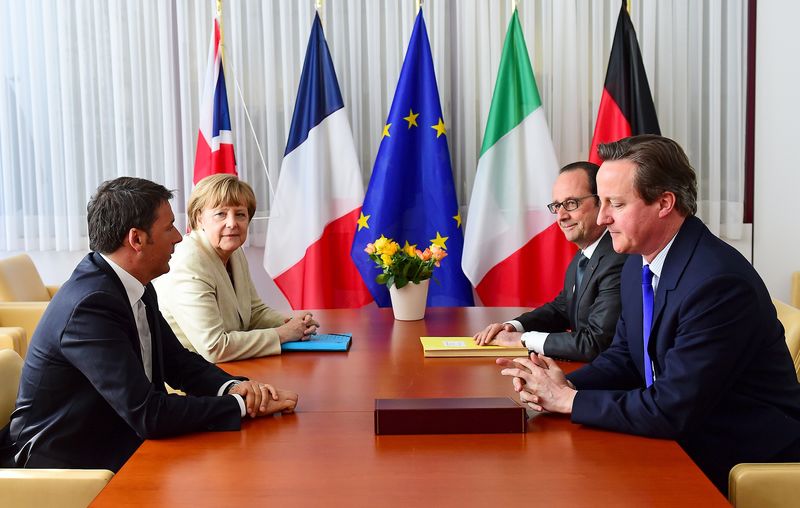By Julien Ponthus
PARIS (Reuters) - France sees plenty of scope for Britain to meet its demands for EU reform without changing its treaties, and is ready to discuss the question sooner rather than later, the French European affairs minister told Reuters.
Prime Minister David Cameron, bolstered by a surprise election victory last week, has said he will press for profound changes in the way the European Union works and promises a referendum by 2017 on whether Britain will remain an EU member.
Cameron has said his plan would need EU treaty change, something that requires approval by referendum in many EU states. France's Harlem Desir said this was out of the question, reiterating the official French line, but added there was no need to get bogged down in a prolonged institutional debate.
"We can do a lot within the treaties as they stand because they offer enormous room for manoeuvre," said Desir, a junior minister and formerly head of the French Socialist Party.
"If Britain's prime minister were to present his demands and proposals within a shorter timeframe than the one that was being mooted at one stage, then we would welcome that," Desir said.
Britain obtained an opt-out from the shared euro currency when it was launched more than a decade ago and also from the Schengen pact that allows people to move freely across the internal borders of its signatories.
But Cameron, under pressure from British Eurosceptics in his own Conservative party and beyond it, has argued that he wants to go further -- notably by curbing immigration from eastern Europe and entitlement to British welfare benefits.
"The battle against fraud and abuses of the system is compatible with the treaties," Desir said, noting a European court ruling last November had made it clear this was possible under current EU rules.
"(But) there are things that are not up for grabs, such as freedom of circulation, which is a fundamental achievement."
French officials have long argued that "Brexit" would neither be in the interest of Britain nor the EU, where Paris sees Britain as a strong partner in areas such as defence.
French leaders of all political colours have tended to be more wary of ceding further national sovereignty to European Union institutions than, for example, their German counterparts have been over the years.
Indeed, a number of EU leaders share British concern over red tape and interference from Brussels, meaning Cameron can expect a certain amount of sympathy when he seeks to push his reform agenda.
In a comment many British Eurosceptics would agree with, Desir said the European Commission, the EU's executive body, did not need to regulate all areas of life in the 28-nation bloc.
"We agree it's not a good thing for the Commission to be drawing up laws on everything from olive oil containers to toilet flushers," he said.

(This version of the story adds missing word "than" in first paragraph)